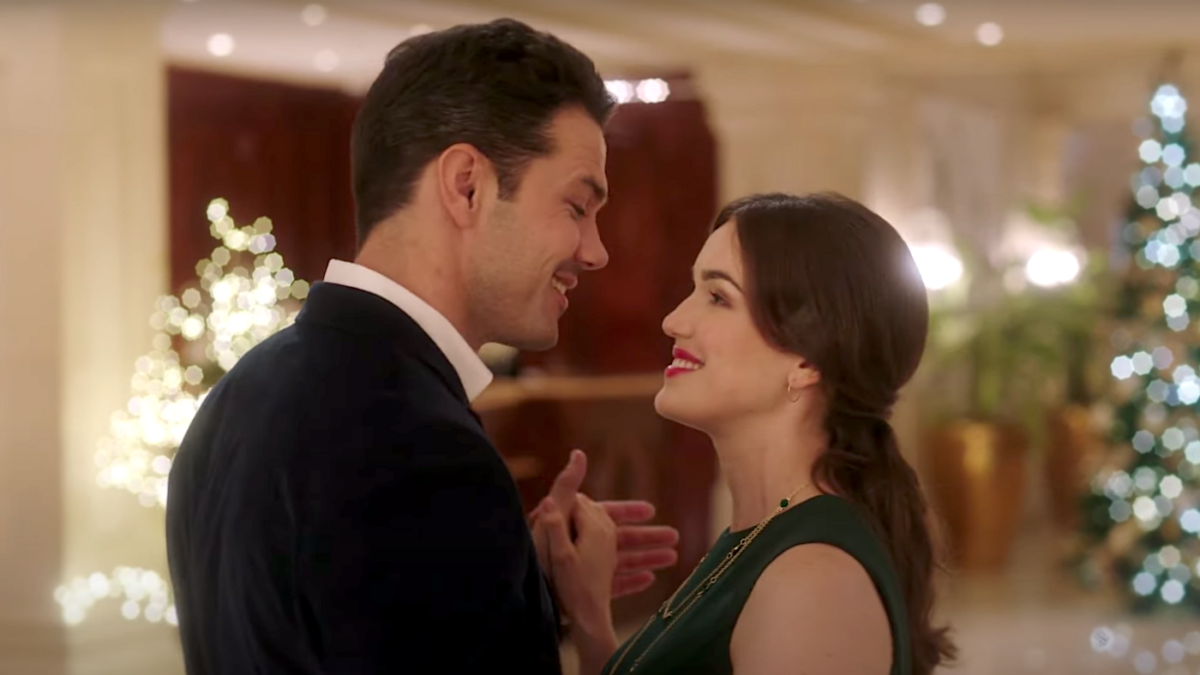Hallmark holiday movies turn this otherwise-Christmas-lover into quite the Scrooge. I absolutely hate them — and for all the obvious reasons: Their premises are ludicrous and dialogue labored, turning every predictable storyline into a corny cliche.
So you can imagine my dismay when I realized my own “original” love story is nothing more than one bad Hallmark plot, and here’s the pitch.
The city-dwelling female protagonist (me) is forced into a small town (my childhood home in the Midwest backwoods) due to an unforeseen catastrophe (coronavirus) when she meets a man who will change her life. A Christmas surprise (a last-minute $35 flight to spend the holiday with his family) moves the plot forward, and just when more calamity (friends dropping left and right to Covid quarantine) threatens to throw things off course just in time for the big New Year’s Eve bash, the main characters improvise with a romantic year’s end stuck at home and his first utterance of “I love you” (though, in true Hallmark fashion, I was the first one to admit it secretly in these pages, in a holiday article no less — gag!).
Long story short, through all the ups and downs, the leading lady realizes climbing the career ladder isn’t all it’s cracked up to be. In slowing down and returning to her roots, she sees marriage, community, and familial proximity as the blessing it is (I moved back to Wisconsin and married the co-star).
Nauseating though it may be, there’s something about a cookie-cutter storyline like this that resonates. After all, Hallmark — or Lifetime or Netflix — devotees are aplenty. Something in these derivative plots keeps viewers coming back for more and thus keeps Hallmark and other streamers shoveling out slight variations year after year. It has to be more than the conventionally attractive gentlemen on the posters since those are ubiquitous in Hollywood. So what is it?
As hard as it is to get past the cheesiness and admit it, perhaps the reason is that Hallmark has its finger on the pulse of something the rest of our culture seems to be missing. Maybe lonely thirty-something ladies on the verge of their biological clocks timing out are coming to the sad realization that their high-rise apartments and corporate bosses offering to fund their abortions don’t really love them back. Maybe an investment in a tight-knit community actually has a higher return than an investment in crypto. Coming home to “fur babies,” having sex with strangers, traveling the world solo, and doing everything “for the ‘Gram” tends to lose its luster when midlife approaches and those distractions are exposed as a bitter end, not a means to a fulfilling one.
Could it be that more and more of today’s women are sick of the radical feminist messages of independence that have promised empowerment but left them more miserable, alienated, intolerant, and confused?
By many accounts, the longer women have internalized the liberation message, the more their happiness has declined. As Zachary Porcu wrote in these pages in September:
A number of studies suggest that married women in traditional gender roles tend to report a higher sense of fulfillment than those who aren’t and that women are happier working part-time rather than pursuing careers. Couples with traditional gender roles also appear to have more sex, according to several studies, while equalitarian relationships tend toward “roommate-like behavior” or a “‘sibling-like’ tonality to the relationship that undermines sexual desire.”
Women are undoubtedly waking up to these realities. As The Federalist’s Madeline Osburn wrote following Sheryl Sandberg’s departure from Facebook, “Covid lockdowns were the nail in the coffin of the ‘Girlboss’ era,” a trend I experienced firsthand. Two years after the start of Covid, almost 2 million women had completely left the labor force, driving women’s participation rate to a 33-year low. Helen Roy captured this reversal perfectly in The American Mind earlier this year:
For single millennial women, first came dull and consuming loneliness. Publications were flooded with pieces by women suddenly overcome with anxiety about their lack of stable, non-superficial relationships. Alone in their apartments, they perceived a lack of love in their lives, and many became acutely aware of what two years of lockdown—precisely as they crested thirty years of age—might mean for their coupling prospects and fertility. All of a sudden, the difference between 28 and 30 felt more dramatic. This biological self-awareness brought several more questions to the surface. The anti-birth control movement found traction on TikTok and Instagram, as well as several more trends relating to slow living, femininity, anti-work, and anti-hookup culture.
These earth-shattering epiphanies are a shot through the heart. They require immediate attention and decisive action if women are going to fully recover their God-given gifts and potential. And while feminism offers a persistence hashtag and a Band-Aid for the bleeding, Christmas chick flick tropes offer something better. In Hallmark movies, women find a dose of reality in the most unexpected of places. It might be a little cliché, but it’s exactly what we want.









